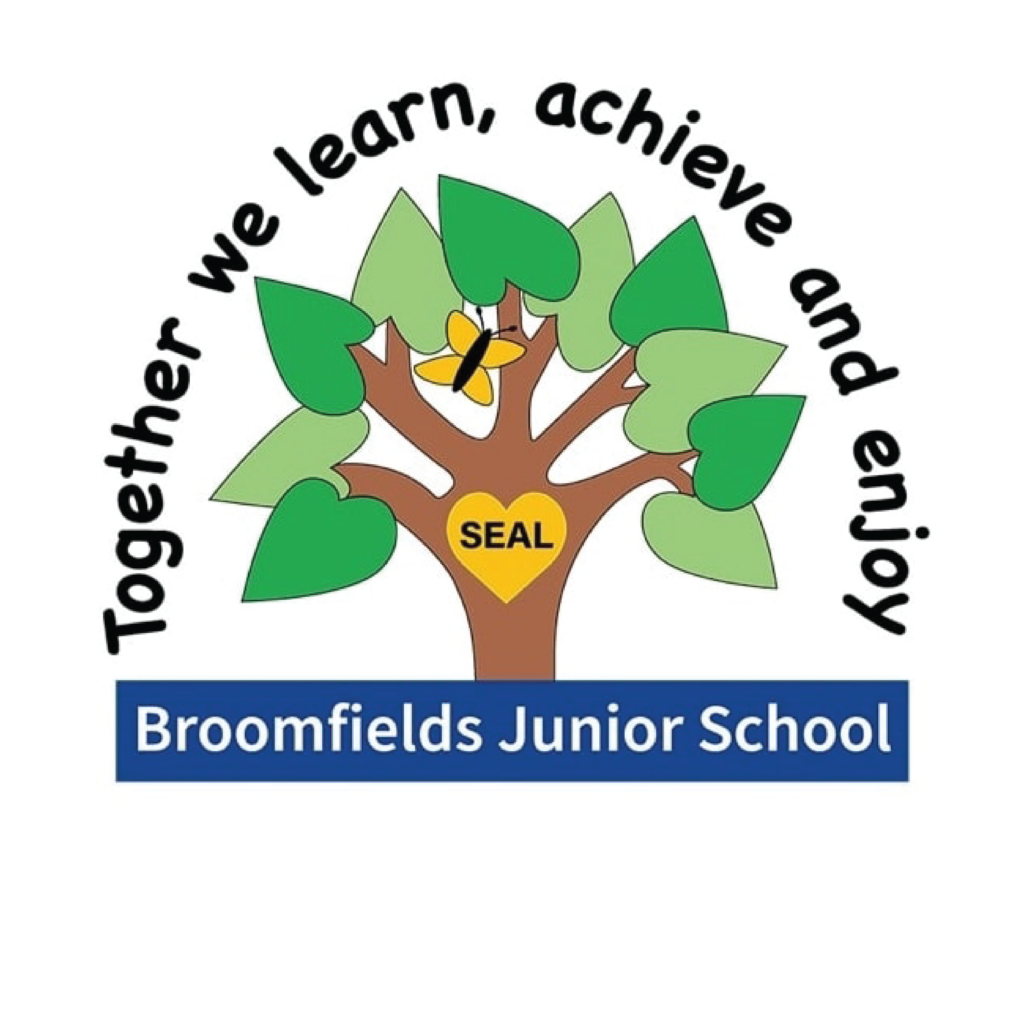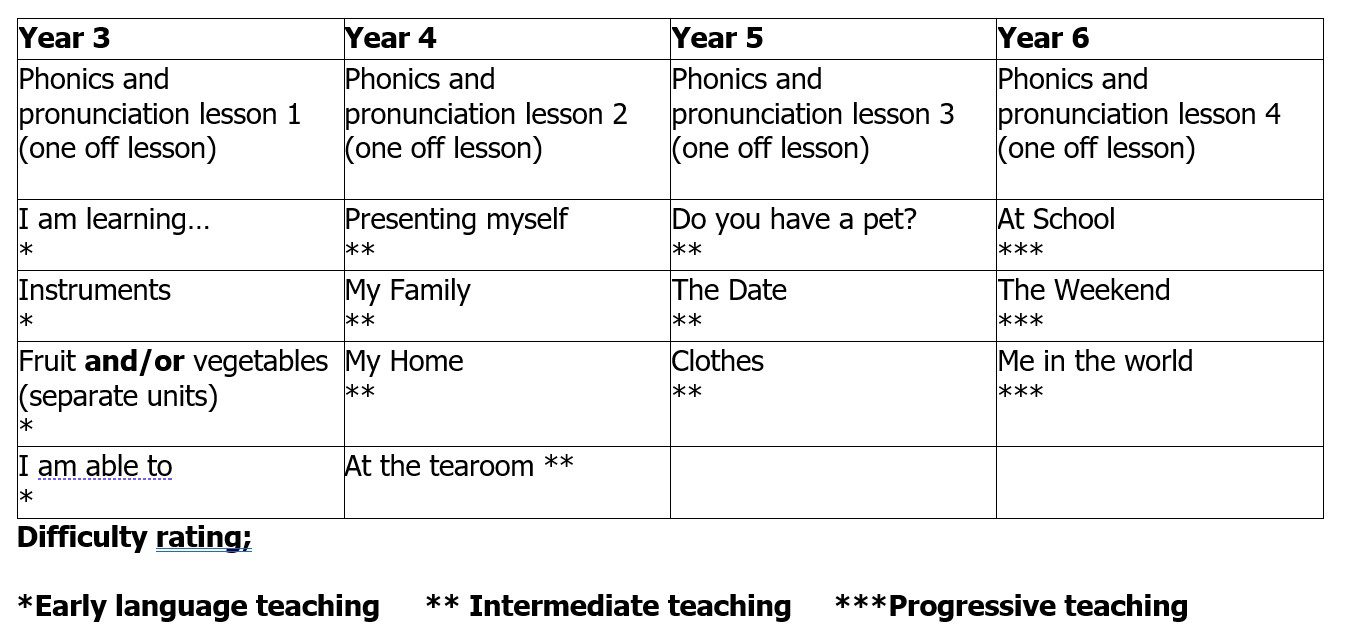Modern Foreign Languages
Learning a foreign language is a liberation from insularity and provides an opening to other cultures. A high-quality languages education should foster pupils’ curiosity and deepen their understanding of the world. The teaching should enable pupils to express their ideas and thoughts in another language and to understand and respond to its speakers, both in speech and in writing. It should also provide opportunities for them to communicate for practical purposes, learn new ways of thinking and read great literature in the original language. Language teaching should provide the foundation for learning further languages, equipping pupils to study and work in other countries.”
At Broomfields we use the Lanuage Angels to plan and teach our children.
Intent
At Broomfields Junior School, we believe that the learning of a language provides a valuable educational, enjoyable and cultural experience for all pupils, including those with special educational needs and/or disabilities. It helps them to develop communication skills, including core skills of speaking, listening, reading and writing. The children’s knowledge of how language works, its phonics system as well as links with grammar in English will be developed and built upon. Lessons will enable pupils to make substantial progress in one language. The ‘transferrable’ language learning skills gained will assist and lay foundations for further language study. It will provide pupils with the confidence and independence to explore and be able to attempt manipulation of the structure of language. Learning another language gives children a new and broader perspective on the world, encouraging them to understand their own cultures more as well as those of others.
Implementation
Language Angel’s scheme of work is a live scheme which is continually updated and revised in order to meet with current curriculum standards. It holds at its core the Intent, Implementation and Impact of teaching MFL whilst maintaining a ‘primary’ focus. Alongside the planning provided, the scheme of supported by accompanying videos, PowerPoints, audio files (spoken by native speakers) links to authentic literature, songs, games, cultural points of reference, seasonal specials and cross-curricular links.
To promote active learning of languages, a range of teaching methods are implemented to ensure that the children are developing their linguistic skills through listening, speaking, reading and writing in order to be secondary ready. Activities can consist of actions, rhymes, stories, song, drama, grammar focus, video clips, air writing, sentence structure, dictionary work, book making and many more creative ways to extend, embed and combine language skills. Written work is kept in work books although formal writing is not the outcome of every lesson.
Impact
Our French curriculum is planned to demonstrate progression both in core skills and language learning skills.
Two forms of assessment are available at the end of every Language Angels unit:
- Peer and self-assessment ‘I can do…’ grids. A quick and easy way for all pupils in the class to record which units they have completed and the progress they are making.
- More detailed skills-based assessments using bespoke skills assessment worksheets. This form of assessment enables us to determine the learning and progression of all pupils in the key language learning skills as well as monitoring their progress against the 12 attainment targets stipulated in the DfE Languages Programme of Study for Key Stage 2.


